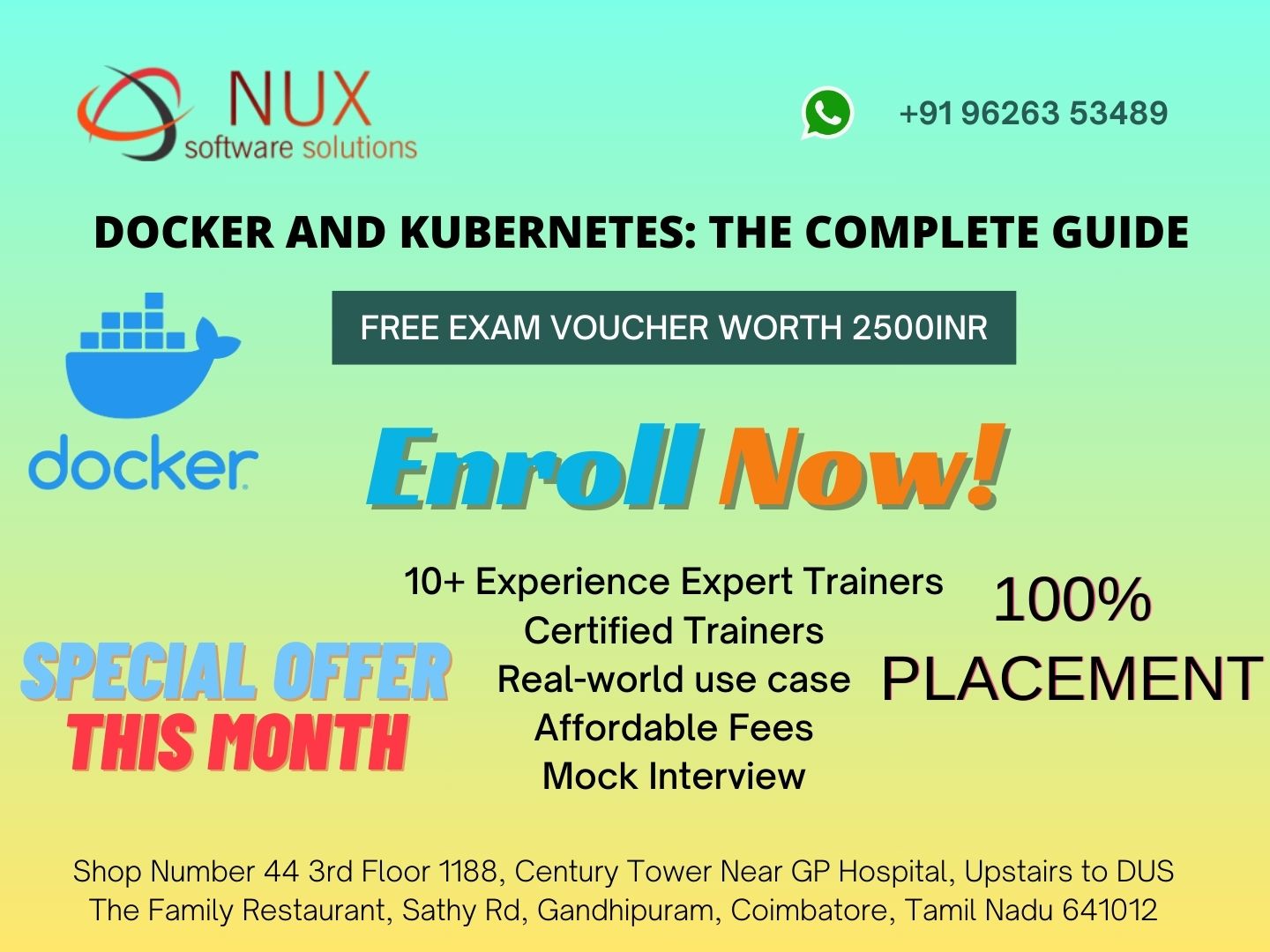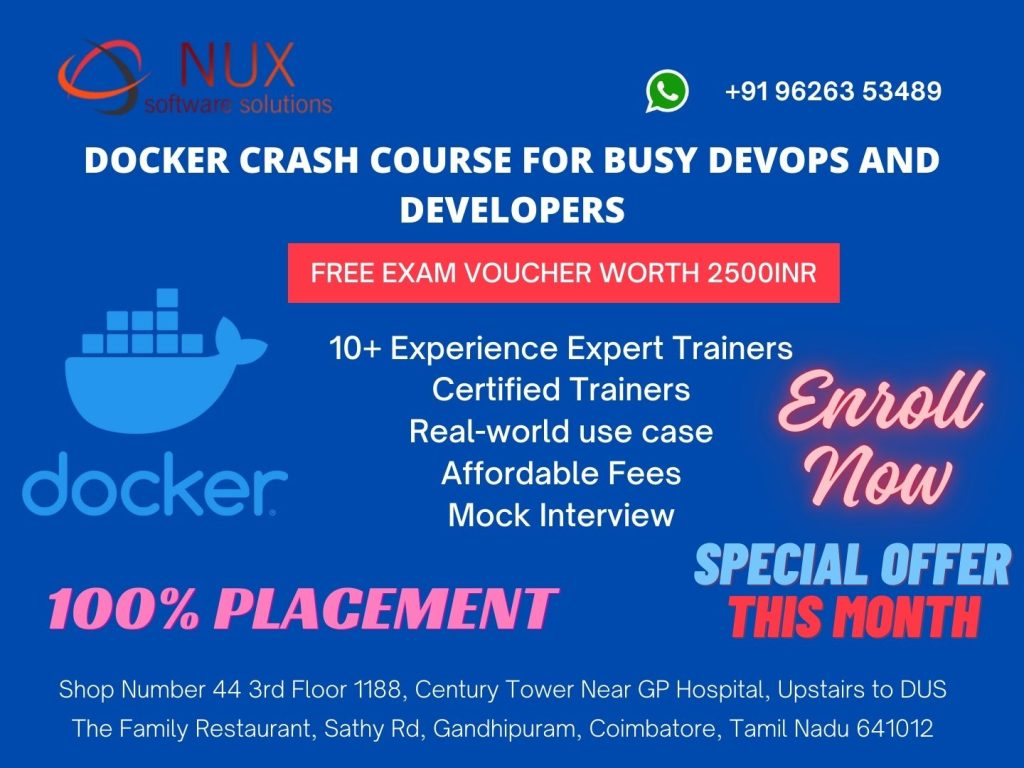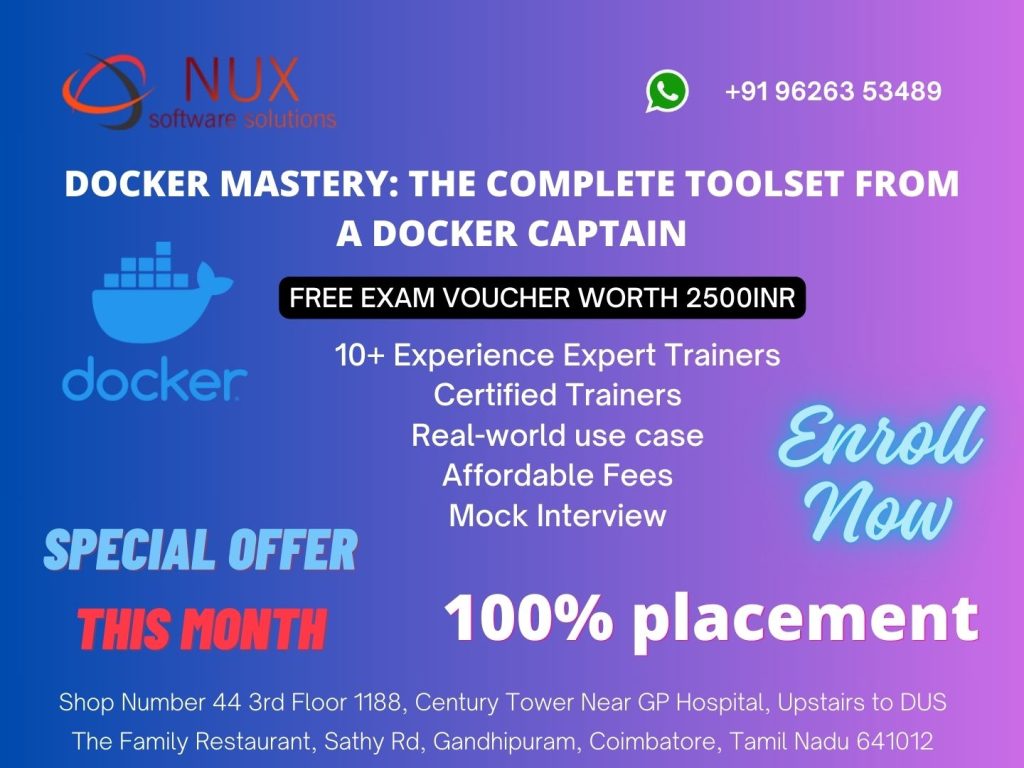Docker and Kubernetes: The Complete Guide

Docker and Kubernetes: The Complete Guide
Course Overview
Docker and Kubernetes: The Complete Guide is an all-in-one training program that helps you master two of the most powerful container technologies in modern DevOps — Docker and Kubernetes. Whether you’re a software developer, DevOps engineer, system administrator, or cloud architect, this course gives you the skills to build, deploy, and scale containerized applications with confidence.
With a balanced mix of theory and hands-on labs, you’ll start by learning how Docker works, progress into creating and managing containers, and then dive deep into Kubernetes — the industry-standard platform for orchestrating containers at scale. You’ll also explore real-world deployment practices used by top tech companies to manage microservices-based applications in production environments.
Why Learn Docker and Kubernetes?
Containerization has completely changed the way applications are built, tested, and deployed. Docker allows developers to package applications and their dependencies into isolated environments, while Kubernetes enables automated deployment, scaling, and management of containerized applications.
Together, Docker and Kubernetes form the foundation of modern cloud-native application development and DevOps practices. Mastering these technologies means:
Faster deployment and scaling
Increased development efficiency
Better resource utilization
More reliable CI/CD pipelines
Readiness for cloud and microservices
Who This Course is For
Software Developers aiming to streamline application deployment and testing.
DevOps Engineers implementing CI/CD pipelines and scalable infrastructure.
System Administrators managing containers and clusters in production.
Cloud Architects designing resilient, containerized cloud applications.
IT Professionals transitioning to DevOps or cloud-native roles.
Tech Enthusiasts and Students looking to break into DevOps or SRE roles.
What You Will Learn
By the end of this course, you will have a solid understanding of:
Docker Topics:
Core Docker concepts and architecture
Building and managing Docker images and containers
Writing efficient Dockerfiles
Using Docker Compose for multi-container applications
Docker networking, storage, and security
Kubernetes Topics:
Kubernetes architecture and components (pods, services, deployments, etc.)
Setting up and configuring Kubernetes clusters (local and cloud)
Managing workloads with kubectl and YAML files
Deploying stateless and stateful applications
Handling scaling, rolling updates, and rollbacks
Exposing services and using Ingress controllers
Persistent volumes and secrets management
Kubernetes in production: Monitoring, logging, and best practices
Real-World Projects and Hands-On Practice
This course includes multiple hands-on labs and real-world projects that simulate real DevOps workflows. You’ll containerize applications, deploy them on Kubernetes, and work with tools used by professionals in production environments.
Projects include:
Building and deploying a Node.js or Python app with Docker
Setting up a Kubernetes cluster using Minikube or cloud platforms
Managing microservices using Kubernetes Deployments and Services
Integrating with CI/CD pipelines using GitHub Actions or Jenkins
Course Benefits
Complete and practical: Covers both Docker and Kubernetes in one streamlined path.
Hands-on: Includes real-world exercises, not just theory.
Up-to-date: Covers the latest practices and versions.
Career-focused: Prepares you for DevOps, SRE, and Cloud Engineering roles.
Scalable knowledge: Skills are transferable across cloud providers (AWS, Azure, GCP).
Career and Certification Advantages
Learning Docker and Kubernetes is an essential step toward top-paying roles in:
DevOps Engineering
Site Reliability Engineering (SRE)
Cloud Infrastructure Management
Software Deployment and Automation
Platform Engineering
This course also prepares you for certifications such as:
Certified Kubernetes Administrator (CKA)
Docker Certified Associate (DCA)
Conclusion
Docker and Kubernetes: The Complete Guide is your ultimate pathway to mastering modern container technology. Whether you’re starting from scratch or looking to level up your DevOps skills, this course gives you everything you need to confidently build, deploy, and manage containerized applications at scale.
Start your journey today — become a Docker and Kubernetes expert and unlock new career opportunities in the world of cloud-native development and operations.
Docker and Kubernetes: The Complete Guide Syllabus
Modules
CHAPTER 1 :
Introduction
Installing and Updating Docker
Installing Docker on Ubuntu
Installing Docker on CentOS
Installing Docker on Windows10-pro
Updating Docker
Granting Docker Control to Non-root Users
Configuring Docker to Communicate Over the Network
Playing Around with Our First Docker Container
CHAPTER 2 :
Major Docker Components
Module Intro
The High-Level Picture
The Docker Engine
Docker Images
Docker Containers
Docker Hub
A Closer Look at Images and Containers
Volumes
Persistent Data and Production Containers
Image Layers
Union Mounts
Where Images Are Stored
Copying Images to Other Hosts
The Top Writeable Layer of Containers
One Process per Container
Commands for Working with Containers
Scenario with a working example
CHAPTER 3 :
Container Management
Module Intro
Starting and Stopping Containers
PID 1 and Containers
Deleting Containers
Looking Inside of Containers
Low-level Container Info
Getting a Shell in a Container
Scenario with a working example
CHAPTER 4 :
Building from a Dockerfile
Module Intro
Introducing the Dockerfile
Creating a Dockerfile
Building an Image from a Dockerfile
Inspecting a Dockerfile from Docker Hub
Scenario with a working example
CHAPTER 5 :
Working with Registries
Module Intro
Creating a Public Repo on Docker Hub
Using Our Public Repo on Docker Hub
Introduction to Private Registries
Building a Private Registry
Using a Private Registry
Docker Hub Enterprise
Scenario with a working example


